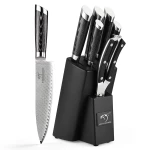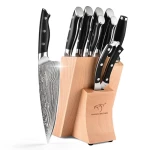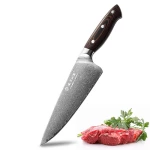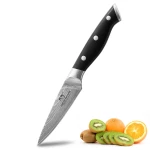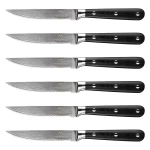The Different Styles of Chef's Knives: German, French, and Japanese Knives Compared
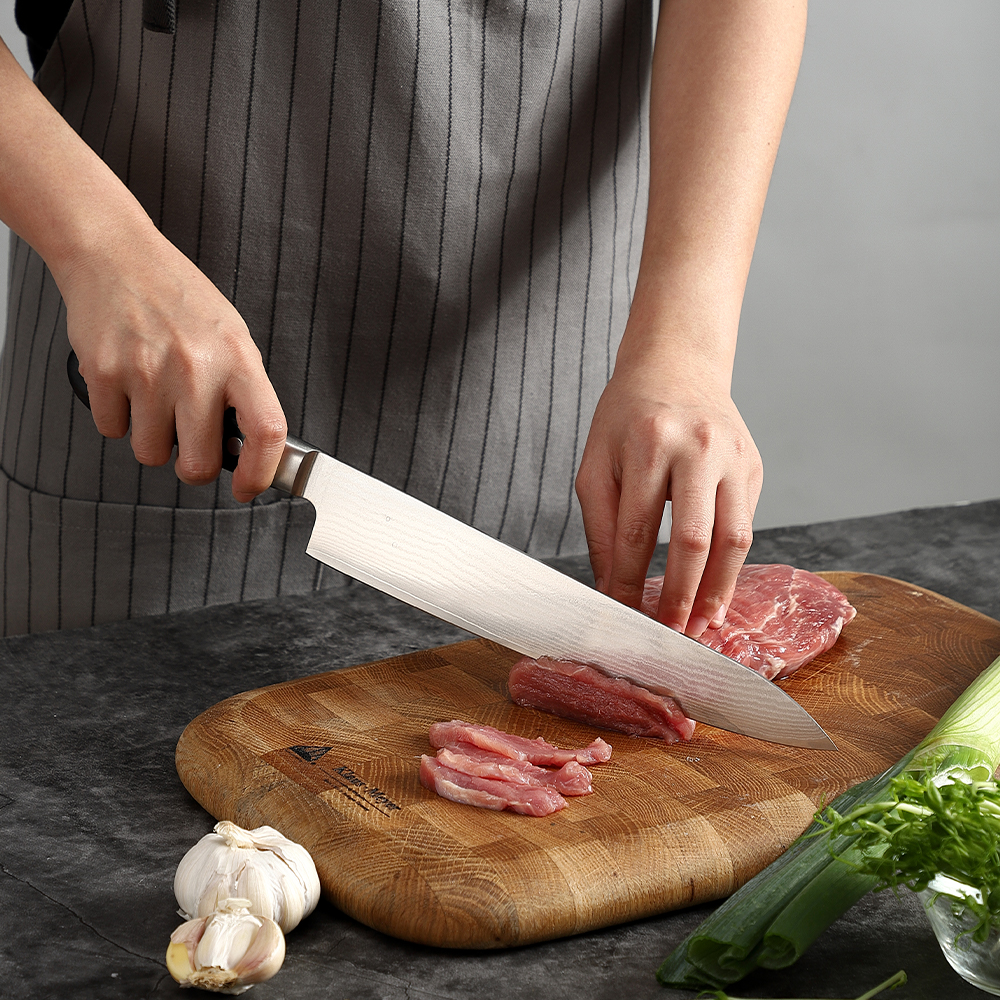 Certainly! The styles of chef's knives can be broadly categorized into German, French, and Japanese knives. Each style has unique features and characteristics that cater to different culinary traditions and cutting techniques. Here's a comparison of the three styles:
Certainly! The styles of chef's knives can be broadly categorized into German, French, and Japanese knives. Each style has unique features and characteristics that cater to different culinary traditions and cutting techniques. Here's a comparison of the three styles:
German Chef's Knife:
1.Blade Profile:
German knives typically have a thicker and heavier blade compared to other styles. The blade has a curved profile that facilitates a rocking motion when chopping and slicing.
2.Edge Angle:
German knives usually have a wider blade angle, typically around 20 to 22 degrees on each side. This wider angle provides durability and resilience to the edge, making it suitable for heavy-duty tasks like cutting through bones and tougher ingredients.
3.Construction:
German knives are often forged from softer steel, which makes them more resilient to impacts and less prone to chipping. They usually have a full tang, where the blade extends through the handle for added stability and balance.
4.Handle:
German knives commonly feature a robust and ergonomic handle, typically made of materials like synthetic polymers or wood. The handle design focuses on comfort and grip, making it suitable for extended use.
French Chef's Knife:
5.Blade Profile:
French knives, also known as "chef's knives" or "chef's knives," have a slightly thinner and lighter blade compared to German knives. The blade has a straighter profile with a gentle curve towards the tip, allowing for precise slicing and chopping.
6.Edge Angle:
French knives often have a narrower blade angle, typically around 15 to 20 degrees on each side. This sharper angle provides enhanced precision and control, making them ideal for delicate tasks like slicing vegetables and herbs.
7.Construction:
French knives can be either forged or stamped, depending on the manufacturer and quality. They are often made from harder steel compared to German knives, offering better edge retention and sharpness.
8.Handle:
French knives typically feature a traditional bolstered handle design, which provides a comfortable grip and prevents the hand from slipping. The handle may be made of materials like wood or synthetic polymers, prioritizing balance and maneuverability.
Japanese Chef's Knife:
9.Blade Profile:
Japanese knives, also known as "gyuto," have a thinner and lighter blade compared to both German and French knives. The blade features a sharper and more acute edge angle, facilitating precise and clean cuts.
10.Edge Angle:
Japanese knives typically have a narrower blade angle, often ranging from 10 to 15 degrees on each side. This ultra-sharp edge allows for effortless slicing and dicing of ingredients with minimal effort.
11.Construction:
Japanese knives are renowned for their high-quality construction and craftsmanship. They are usually forged from high-carbon steel or layered Damascus steel, which offers exceptional sharpness, edge retention, and strength.
12.Handle:
Japanese knives may feature a traditional wooden handle (e.g., Ho wood, Pakka wood) or a modern synthetic handle. The handle design focuses on balance and precision, providing optimal control and comfort during use.
13.Summary:
German Chef's Knife: Robust, heavy-duty blade with a curved profile and wider edge angle, suitable for chopping through tough ingredients.
French Chef's Knife: Versatile, precise blade with a straighter profile and narrower edge angle, ideal for delicate slicing and chopping tasks.
Japanese Chef's Knife: Ultra-sharp, lightweight blade with a thinner profile and acute edge angle, offering exceptional precision and control for intricate cutting techniques.
Each style of chef's knife has its advantages and is suited to different cooking styles and preferences. Choosing the right knife depends on factors such as cutting technique, comfort, and the types of ingredients you frequently work with.

